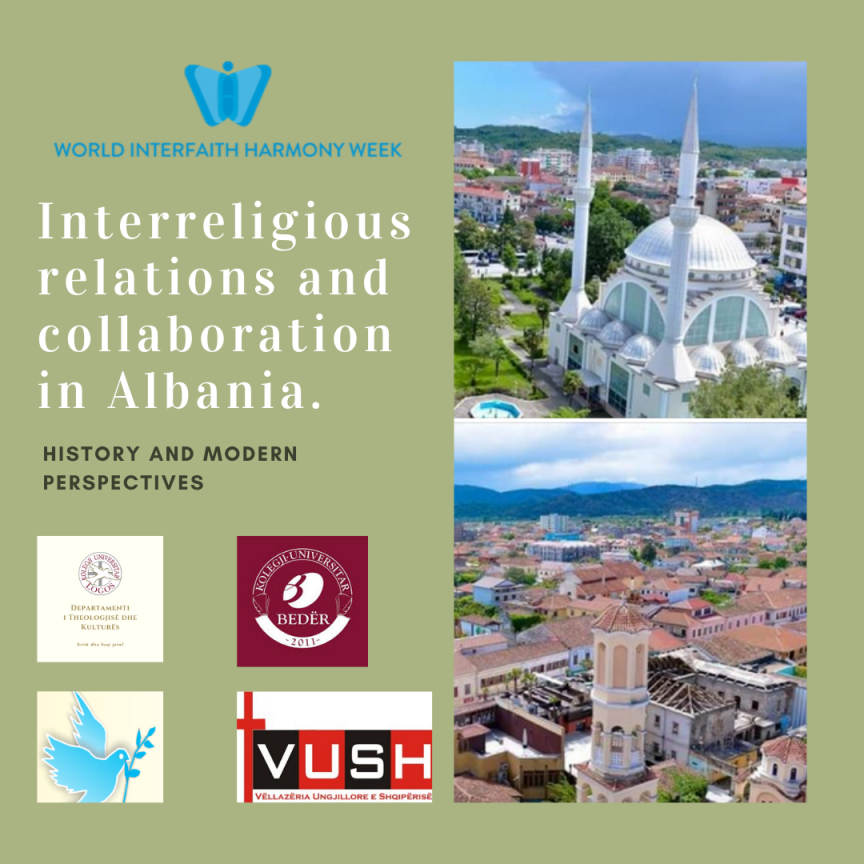Country: Albania
City: Tirana
Organizer
Department of Theology & Culture, University College Logos
Location
Rruga “Dritan Hoxha”, Pallatet Komfort
Email
[email protected]
On the occasion of the 10th Anniversary of World Interfaith Harmony Week, the Department of Theology & Culture of University College Logos will organize a round table on 3rd March (5 pm) with the title "Inter-religious relations and collaboration in Albania. History and Modern Perspectives". The event will take place in the central campus of University College Logos with the collaboration of the Department of Islamic Studies of University College Beder, the Catholic Seminar of Shkodra and the Evangelical Brotherhood of Albania.
There is a general conscience that Albanians boast of the tradition of religious tolerance. It is believed that it is a national characteristic, in the sense that most people think it dates back to the time that is not remembered. Common explanations for religious tolerance are the suggestions that Albanians value the nation over any religious conviction or claim that Albanians have always been indifferent to the issues of religion. These explanations are part of
doxa-s (belief or popular opinion) as it uses Pierre Bourdieu this term because Albania has a long history of religious tolerance. From one long-term perspective, over the last 200 years, religious tolerance is positioned in an environment complicated cultural and political, formed, among other things, by the collapse of the Ottoman Empire and the birth of Albanian nationalism, the creation of the Albanian secular state, changes and displacements brought about by the processes of modernization, the imposition of isolation and atheism by the communist regime.
Albania composed of different denominations – Sunnis, Bektashis, Orthodox Christians, Catholics and Protestants – followed a different pattern compared to other countries in the region. Divided among different religious communities, the country faced the challenge of pacifying rather than exalting these differences if it was to remain a unitary state. Hence, different groups with different loyalties, ideological doctrines and political preferences were to be brought under one collective “imaginary” national umbrella. For the religious leaders of each religious community in Albania, religion is a constructive unifying force, which along with the practice of religious cohabitation protects and enhances the nation.
So, it is really interesting to discuss how this religious tolerance and coexistence has worked in Albania and which are the common ethical points that unites the religious communities as a base of their collaboration and coexistence today and in the future.

